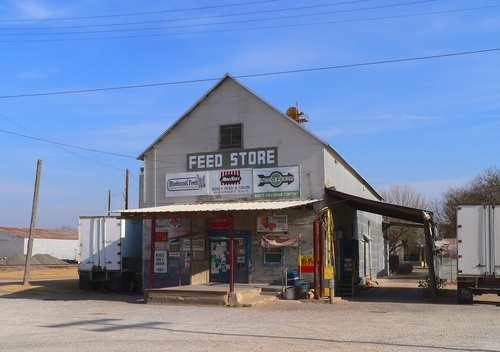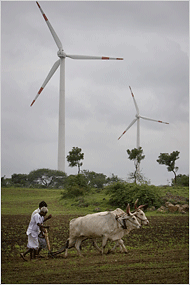Part 5 in a series on planned obsolescence
The back highways in southeastern Texas are plentiful with picturesque small towns – places many once saw as the American Way’s bedrock. Each town’s picturesque assembly of hardware stores, clothing stores, and churches might have been lifted from a Norman Rockwell canvas – “go-about-your-business” sorts of places.
Except for one thing: business – once a day-in, day-out standard – is essentially nonexistent or radically diminished in the majority of these locales. Reality seems to have distilled its bitter dose of tranquilizers, leaving them for gullible takers.
Best intentions aside, there is no economy here, just the imagination that someone brushed on canvas some time ago. In one quaint town, the doors of the small restaurant are locked shut; it is the same at the hardware store and gas station on the corner. The remaining clothing store with an “Open” sign in the window must be run by wealthy hobbyists in need of a write off or by one of the few churches that’s still open.
This rural cityscape seems overshadowed by all the ghosts walking along its sidewalks, praying for some kind of planned obsolescence that just never happened, its growth quotient having been stopped in its tracks.
Growth quotient, you say? Had all these small rural towns gotten larger and more diverse – added something like a Winnebago manufacturing plant – would they have survived? That’s another story, though. Forever, it turns out, is not an end destination, nor is it a peculiar time warp that prevails on its own terms, whatever the company, whatever the country, whatever the product. Forever has simply never existed.
For all these vacant spaces, one is inclined to ask how most folks are making money these days, and spending it, too. Or how the fundamentals of economic and business growth no longer gleam as brightly as they once did.
When the White House solemnly witnessed the ouster of GM’s CEO, Rick Waggoner, prior to handholding the company in its petition for bankruptcy, a “NAY” vote was cast on Waggoner’s star-studded super-American vehicle, the Hummer. Enormous, ostentatious, a gas hog, and a bad image for American foreign affairs in 2009, it was a fitting icon for consumer extravagance on one hand, consumer obsolescence on the other.
As most of us know, no matter how reluctant we are to admit it, change is standard equipment that came along on our ride for life with no extra charges.
Maggie Drewyer, my Welsh grandmother, was reared during the scarcity and want of the Great Depression and learned to become a careful considerer about what she bought, how she used it, and whether or not its was ready to be replaced. If a rusted and bent screwdriver could not be used somewhere practical, maybe somebody else down the road had a need for the tool.
Simply tossing something out was more rare than common like it is today. As such, many of her contemporaries became collectors of fabulous drawers full of items like string, paper clips, expired food coupons, or buttons. I did not reach adulthood separated from this prudent habit and still feel a twinge of guilt if I toss an unblemished button matching only the one coat I gave away years ago. This is probably why I have my own collection of unmatched buttons I’ve dragged with me for the past three decades or so. Said miscellany is certainly no measure of wealth or plenty, even if there happen to be some resemblances. Perhaps this is why I never made a seamless transition to the world of disposable products.
Coming Next: Part 6 & The Bic Effect
About this report: The following series on planned obsolescence is taken from a book Glenn Meyers presently writing, “The Growth Quotient.” Here is an archive of these posts:
- The Greatest Invention: Planned Obsolescence – Part 1
- The Freight Train for Planned Obsolescence Jumps to High-Speed Tracks – Part 2
- Moore’s Law & Planned Obsolescence Construct a Technology Traffic Jam: Part 3
- Planned Obsolescence & the Bubble That Burst: Part 4
- Unplanned Obsolescence & the Texas Back Roads: Part 5
- Planned Obsolescence and the Bic Effect – Part 6
- The Evolution of Planned Obsolescence: Innovation’s Litter – Part 7
Photos: Old feed store in Texas from Shutterstock, Humvee in Oshkosh from Shutterstock




